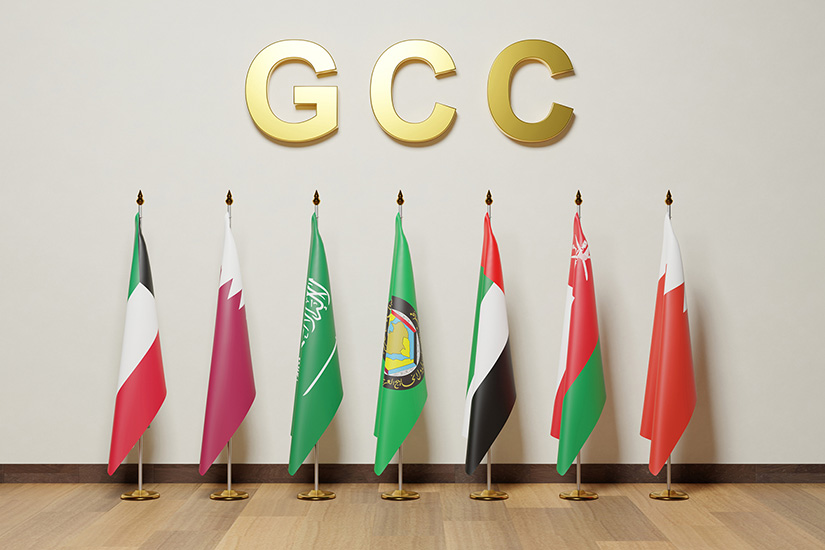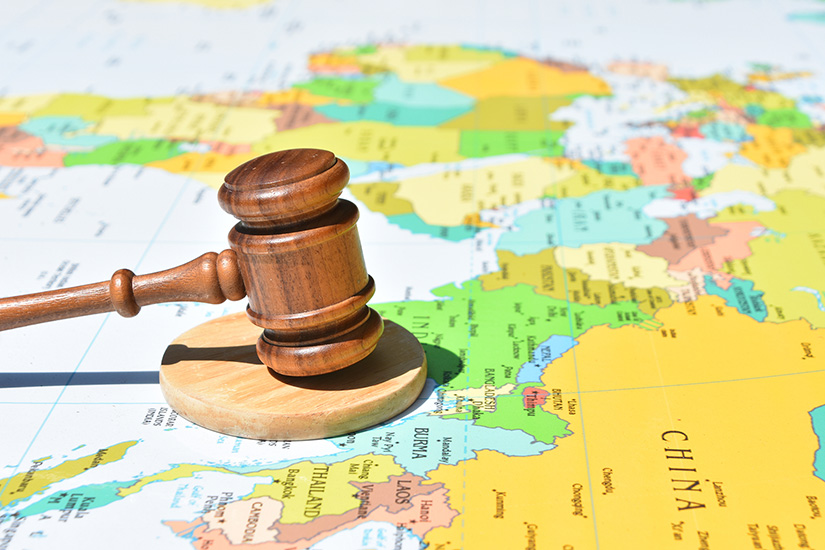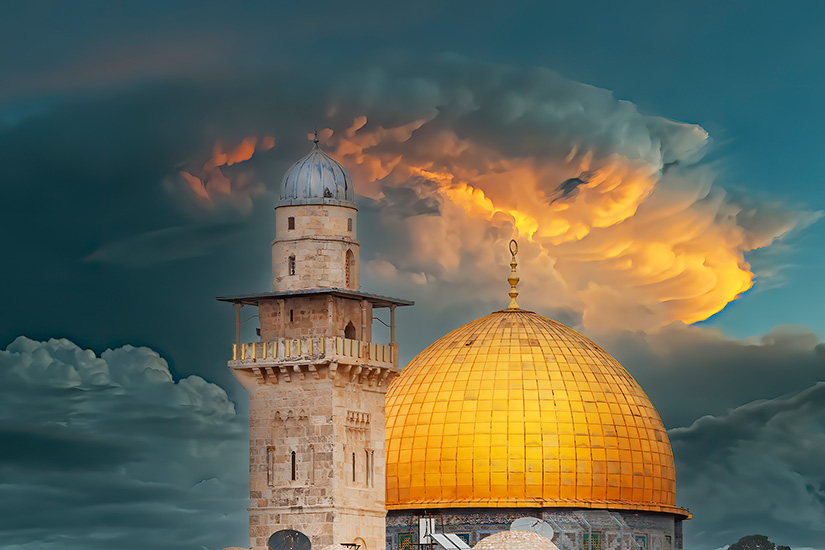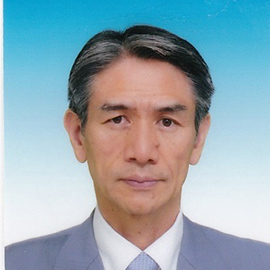Introduction
On June 13, 2025, Israel launched a large-scale preemptive strike targeting Iran’s nuclear facilities, conventional military assets, senior commanders, and nuclear scientists.[1] This marked the third direct Israeli attack on Iranian territory, following similar operations in April and October 2024. In retaliation, Iran fired missiles and drones into Israel the same day, triggering a 12-day military confrontation.
The United States entered the conflict on June 22 by bombing three Iranian nuclear sites.[2] President Donald Trump hailed the joint Israeli-US operation as a “spectacular military success,” claiming that “Iran’s key nuclear enrichment facilities have been completely and totally obliterated.”[3] Iran condemned the strikes as an unprecedented violation of the fundamental principles of the UN Charter and international law.[4] On June 23, it launched missiles at the US Central Command’s Al Udeid Air Base in Qatar, having issued prior notice to the Qatari government.[5]
Tensions quickly subsided through diplomatic efforts by the United States and Qatar, culminating in President Trump’s announcement that Israel and Iran had agreed to a “complete and total ceasefire.”[6]
This article examines the international response to the Israeli and US use of force against Iran, with particular focus on the member states of the Gulf Cooperation Council (GCC), which publicly condemned Israel’s actions on June 13 as violations of international law. These events not only compel a reassessment of the role of international legal norms in maintaining regional order but also serve as a litmus test for whether GCC states will continue aligning their policies with the vision of Middle East stability promoted by Israel and the United States—one that seeks peace through strength.

A Fraying International Legal Order
On June 7, 1981, Israel carried out an airstrike on Iraq’s Osirak nuclear reactor, which was still under construction. Iraq had been a signatory to the Treaty on the Non-Proliferation of Nuclear Weapons (NPT) since its inception. In response, the UN Security Council adopted Resolution 487 on June 19, strongly condemning Israel’s military action as a “clear violation of the Charter of the United Nations and the norms of international conduct,” and called on Israel to “refrain in the future from any such acts or threats thereof.” Israel has not complied with the resolution and has continued to ignore the urgent request to place its own nuclear facilities under International Atomic Energy Agency (IAEA) safeguards.[7]
The United States has also faced scrutiny over its use of force in the Middle East, with several incidents raising legal questions about violations of sovereignty and the legitimacy of military action. Notable examples include (1) the Reagan administration’s bombing of Libya in April 1986, (2) the Obama administration’s killing of Osama bin Laden inside Pakistani territory in May 2011, and (3) the Trump administration’s January 2020 assassination of Qasem Soleimani, commander of Iran’s Quds Force, on Iraqi soil.
In particular, the first and third cases drew criticism for failing to provide sufficient evidence of an “imminent threat,” leading many to denounce them as violations of international law.[8]
The recent Israeli and US strikes on Iran have similarly sparked debate over the legitimacy of invoking self-defense. One justification cited by Israel and its allies is Iran’s alleged breach of its nuclear monitoring obligations, as affirmed in a June 12 resolution by the IAEA Board of Governors.[9] Building on this, the G7 leaders issued a joint statement on June 16 affirming Israel’s right to self-defense and expressing support for its national security.[10]
Iran, however, submitted a letter to the UN Security Council asserting that the use of force violated multiple core principles of the UN Charter and international law, including (1) the prohibition on the use of force, (2) the prohibition on aggression, (3) the duty of nonintervention, and (4) Iran’s right to self-determination.[11]
The GCC states expressed understanding of Iran’s position and convened an emergency foreign ministers’ meeting on June 13, explicitly condemning Israel’s military action as a breach of international law and the UN Charter.[12] On June 22, both the Arab League and the Organization of Islamic Cooperation—of which GCC states are members—issued statements condemning the US bombing of Iranian nuclear sites as a violation of Iranian sovereignty, though without naming the United States directly.[13]
Taken together, Arab and Islamic countries, including the GCC, have reaffirmed their commitment to upholding international law and the UN Charter without exception. This stance reflects a consistent position in their approach to the Gaza conflict and the broader Palestinian issue, underscoring a fundamental divergence from the peace through strength doctrine espoused by Israel and the United States.
Pathways to Regional Security and Stability
Two days after the ceasefire agreement, on June 26, Prime Minister Benjamin Netanyahu declared in a video address that Israel had “achieved a great victory” in its military offensive against Iran. He also expressed his intent to leverage this moment to end the conflict in Gaza and expand normalization with Arab states under the Abraham Accords.[14] For Netanyahu, the expansion of the accords—alongside the dismantling of Hamas, the disarmament of Hezbollah, and territorial gains within Syria—constitutes a central pillar of Israel’s national security strategy. The Trump administration has supported this trajectory through arms assistance and strategic alignment. Both administrations appear to share a vision for a future Middle East devoid of anti-Israel forces, particularly Iran’s current regime.[15]

In contrast, the GCC states have sought to coordinate with Arab and Islamic countries to promote peace and stability grounded in international law. On the Palestinian issue, the UN Arab Group—comprising Arab states’ permanent representatives to the United Nations and currently chaired by the UAE—has played a central role in securing the adoption of four resolutions on Gaza in the UN General Assembly.[16] Moreover, the GCC states are actively engaged in the High-level International Conference for the Peaceful Settlement of the Question of Palestine, co-hosted by Saudi Arabia and France. Originally scheduled for June 17 but postponed to July 28, the conference aims to reaffirm the international community’s commitment to a two-state solution and to mobilize UN member states toward its realization.[17]
Qatar has continued to act as a mediator in ceasefire negotiations between Israel and Hamas, working in coordination with the United States and Egypt. On the Iran nuclear issue, Oman has served as an intermediary in indirect talks between Washington and Tehran, facilitating five rounds of negotiations since April 2025 in pursuit of a diplomatic resolution. However, Israel’s military action against Iran on June 13—just days before the sixth round of talks scheduled for June 15—prompted the GCC to issue a unified statement condemning the attack.
During this period of heightened tensions, Saudi Crown Prince Mohammed bin Salman held phone calls with President Trump on June 13[18] and with Iranian President Masoud Pezeshkian on June 14,[19] seeking to de-escalate the conflict. On June 16, Oman’s Sultan Haitham bin Tariq spoke with President Pezeshkian,[20] and on June 18, UAE President Mohammed bin Zayed held a call with Russian President Vladimir Putin,[21] both aiming to identify pathways toward a ceasefire.
Notably, the GCC strongly condemned Iran’s attack on the US military base in Qatar, describing it as a grave violation of international law.[22] Nevertheless, following the announcement of the ceasefire agreement, Saudi Crown Prince Mohammed spoke again with President Pezeshkian on June 24 to express his welcome and support for the ceasefire deal.[23]
The GCC states have clearly signaled to the international community their commitment to upholding international law and the role of multilateral institutions in resolving both the Gaza conflict and the Iran issue. This approach not only helps chart a course toward settling the Palestinian question but also preserves strategic flexibility amid ongoing tensions between Israel, the United States, and Iran.
Conclusion
In recent years, growing dialogue in the Gulf region has helped build trust among key stakeholders. The Arab-Iranian Dialogue Conference has convened annually since May 2022 to discuss regional and global challenges.[24] Other notable developments include the March 2023 Saudi-Iran reconciliation brokered by China and the inauguration of Iranian President Pezeshkian in July 2024. In April 2025, Saudi Defense Minister Khalid bin Salman made a landmark visit to Iran—the first such trip in 26 years—and delivered a letter from King Salman bin Abdulaziz to Supreme Leader Ali Khamenei.[25]
Amid the global shift toward decarbonization, the GCC states face mounting pressure to reduce their dependence on oil and natural gas, expand the private sector, and create employment opportunities. These imperatives have heightened the importance of intra-regional economic cooperation. Additionally, fostering a peaceful environment in the Middle East is essential to attract investment, with reconstruction support for Syria and Lebanon forming part of this broader strategy. In these ways, the GCC states are envisioning a security framework that extends beyond military concerns to encompass long-term regional development.
Meanwhile, Israel continues to pursue policies in the West Bank, Gaza Strip, and Jerusalem that contravene international law and UN resolutions, while maintaining its intention to use force against Iran.[26] This approach of achieving peace through military power stands in stark contrast to the comprehensive security vision championed by the GCC. Unless Israel undergoes a fundamental shift in its posture, meaningful progress in improving relations between Israel and the Gulf states will likely remain elusive.

(2025/08/18)
Notes
- 1 Planned and carried out by the Israeli military, Operation Rising Lion used 200 fighter jets and drones in covert operations to strike over 100 locations inside Iran. “Israel carries out strikes targeting Iran’s nuclear, military sites,” Al Jazeera, June 13, 2025. The Israeli military announced that the attack eliminated 11 nuclear scientists involved in Iran’s nuclear program, killed numerous military personnel, including 30 senior commanders, and destroyed 35 missile production sites—amounting to roughly 50% of Iran’s stockpile—as well as approximately 200 missile launchers. Ikram Kouachi, “Israel claims assassination of 11 Iranian nuclear scientists, massive strikes during war on Iran,” Anadolu Agency, June 27, 2025.
- 2 In the operation named Midnight Hammer, seven B-2 stealth bombers dropped 14 Massive Ordnance Penetrators (MOPs)—previously used only for testing—on nuclear facilities in Natanz and Fordow, while 24 Tomahawk cruise missiles were launched from submarines targeting Isfahan. Luis Martinez, Anne Flaherty, and Bill Hutchinson, “How bunker-busters and B-2 stealth bombers struck at the heart of Iran’s nuclear program,” ABC News, June 23, 2025.
- 3 “Transcript: President Donald Trump addresses nation after US strikes on Iran,” ABC News, June 22, 2025.
- 4 “Foreign Ministry: World should not forget it was the U.S. that started a dangerous war against Iran,” Islamic Republic News Agency, June 22, 2025.
- 5 The missile was intercepted by Qatar’s air defense system, and there were no casualties among US forces or in Qatar. President Trump expressed gratitude for Iran’s response. Barak Ravid, “No casualties reported after Iran missile attack on U.S. base in Qatar,” Axios, June 22, 2025.
- 6 “Trump claims ceasefire reached between Israel and Iran,” Al Jazeera, June 23, 2025. In securing the ceasefire agreement, President Trump held a phone call with Prime Minister Netanyahu, while Qatar’s Prime Minister Mohammed obtained Iran’s consent. Kylie Atwood, Jennifer Hansler, Alayna Treene, Jeff Zeleny and Zachary Cohen, “Dramatic day of diplomacy culminates in Trump announcing Iran-Israel ceasefire,” CNN, June 24, 2025.
- 7 “Resolution 487 (1981) of 19 June 1981,” United Nations Security Council, June 19, 1981.
- 8 “Declaration of the Assembly of Heads of State and Government of the Organization of African Unity on the aerial and naval military attack against the Socialist People’s Libyan Arab Jamahiriya by the present United States Administration in April 1986,” United Nations General Assembly, November 20, 1986; Takao Shimizu, “Kokusaiho to senseiteki jiei” [International Law and Preemptive Self-Defense], Refarensu, April 2004; “US and Iran escalation questions answered: What can the world do?” BBC, January 9, 2020.
- 9 “NPT Safeguards Agreement with the Islamic Republic of Iran” International Atomic Energy Agency, June 12, 2025.
- 10 “G7 Leaders’ statement on recent developments between Israel and Iran,” Ministry of Foreign Affairs of Japan, June 16, 2025.
- 11 “Iran urges U.N. Security Council to hold the U.S. and Israel accountable for their war of aggression,” Islamic Republic News Agency, June 29, 2025.
- 12 Notably, there is no mention of the United States. “Gulf Cooperation Council Condemns Israeli Strike on Iran, Calls for Diplomacy,” Asharq Al-Awsat, June 17, 2025.
- 13 Regarding the Arab League: “Arab League Voices Concern Over Escalation Following Military Operations Against Iran,” Saudi Press Agency, June 22, 2025. Regarding the Organization of Islamic Cooperation: “OIC: Targeting Iranian Nuclear Facilities Threatens Mideast Security, Peace, and Stability,” Qatar News Agency, June 22, 2025.
- 14 Lazar Berman and ToI Staff, “Netanyahu: Win over Iran created opportunity that must be seized to expand peace deals,” Times of Israel, June 26, 2025.
- 15 This vision is outlined in Prime Minister Netanyahu’s publicly released Gaza 2035 plan. Yuval Barnea, “From crisis to prosperity: Netanyahu’s vision for Gaza 2035 revealed online,” Jerusalem Post, May 3, 2024.
- 16 In the UN General Assembly, four resolutions calling for an immediate ceasefire in the Gaza conflict were adopted in October and December 2023, and December 2024. The June 12 resolution was adopted by the General Assembly (149 in favor, 12 against, 19 abstentions) after the United States exercised its veto in the Security Council on June 4 (14 in favor). The resolution strongly condemned “the use of starvation of civilians as a method of warfare.” United Nations General Assembly, “Protection of civilians and upholding legal and humanitarian obligation,” June 9, 2025.
- 17 “Co-Chairs of the UN Palestine Conference—Saudi Arabia, France—and Co-Chairs of its Working Groups: Conference Suspended Amid Regional Escalation,” Saudi Press Agency, June 17, 2025.
- 18 “Saudi crown prince, President Trump discuss regional tensions in phone call,” Arab News, June 13, 2025.
- 19 “HRH the Crown Prince Condemns Israeli Attacks in Phone Call with Iranian President,” Saudi Press Agency, June 14, 2025.
- 20 “His Majesty The Sultan Holds Phone Call with Iranian President” Oman News Agency, June 16, 2025.
- 21 “UAE president, Russia’s Putin discuss Iran-Israel conflict,” Arab News, June 18, 2025.
- 22 “What have countries said about Iran’s strike on a US base in Qatar?” Al Jazeera, June 23, 2025.
- 23 “Saudi crown prince and Iranian president discuss Iran-Israel ceasefire deal,” Arab News, June 24, 2025.
- 24 The fourth edition of the conference was held in Doha from May 10 to 12, 2025, under the theme “Strong Relations and Mutual Interests,” focusing on pathways for political, security, and economic cooperation. “Arab-Iranian Dialogue Conference concludes fourth edition with proposals for deepening cooperation,” Al Jazeera Center for Studies, May 15, 2025.
- 25 “Khalid bin Salman in Iran, Hands Khamenei Message from King Salman,” Asharq Al-Awsat, April 17, 2025.
- 26 “Israeli military to prepare plan to ensure Iran is no longer a threat: Defense minister,” Al Arabiya, July 4, 2025.

